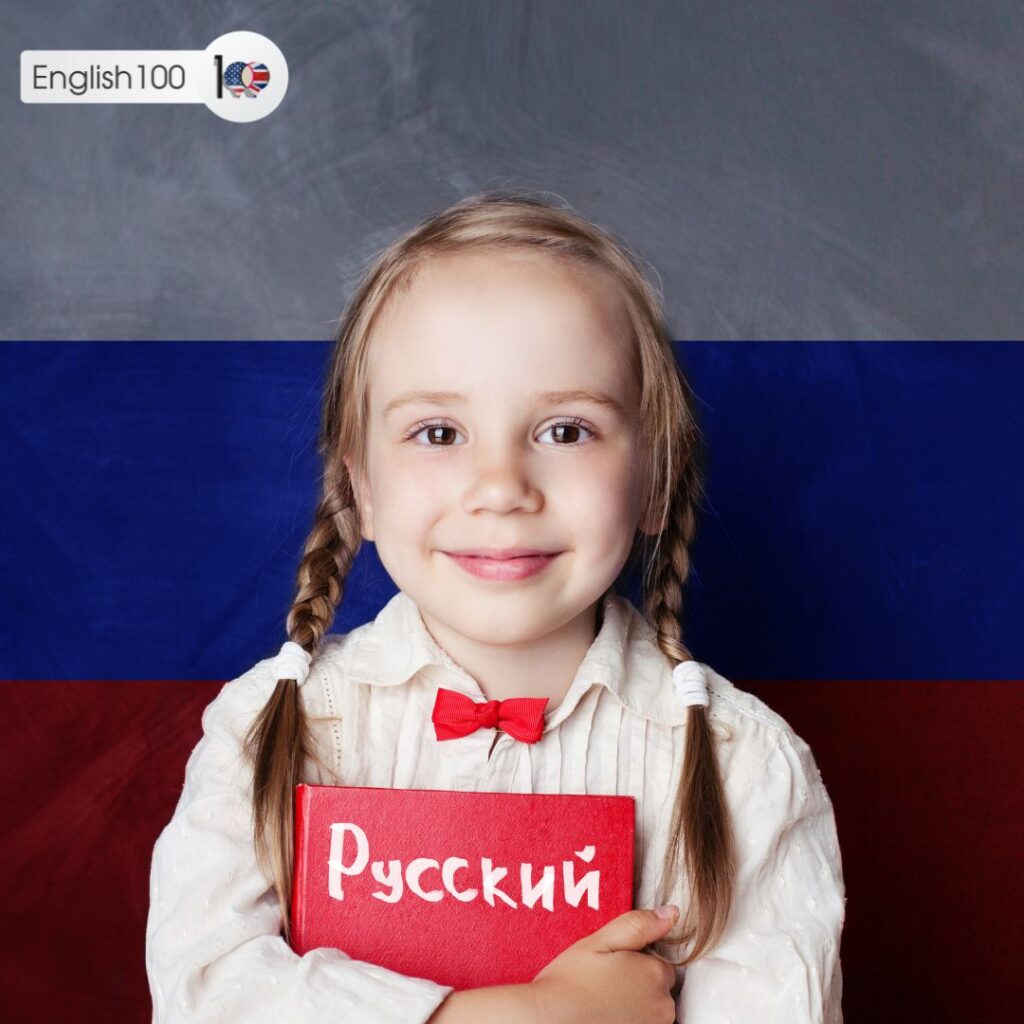“Is Russian hard to learn for English speakers?” The answer to this question is in this post. One of the most challenging languages to master is Russian. In this blog post, we’ll explore seven unexpected reasons why is Russian hard to learn for English speakers.
From its complex grammar rules to its unique alphabet system, there’s no shortage of obstacles when it comes to learning this fascinating language.
But don’t worry; we’ll also provide tips on how to overcome these challenges so that you can become a successful Russian speaker. So if you’re ready to take on the challenge of learning Russian, read on!
Is Russian hard to learn for English speakers?

Russian is considered a difficult language for English speakers to learn, but with dedication and practice, it can be mastered. One of the biggest challenges in learning Russian is its complex grammar system, which includes six cases and verb conjugations that change based on tense, gender, and number.
Additionally, the Cyrillic alphabet can be daunting for those unfamiliar with it. However, Russian also has consistent pronunciation rules and straightforward vocabulary. With the help of a good teacher or language program, a willingness to study regularly, and patience in the face of challenges, English speakers can successfully learn Russian and gain access to all the culture and opportunities that come with it.
Of all the European languages a native English speaker can learn, Russian is among the most difficult. The Germanic and Romance languages have a lot of the same core because they both have roots in Latin. Russian is from a completely different language branch called the Slavonic branch, which includes Czech and Polish.
7 Reasons why is Russian difficult to learn for English speakers:

Do you really want to know why is Russian hard to learn for English speakers, let’s tell you:
Reasons for Russian difficulty
1. Cyrillic alphabet
One of the main reasons why is Russian hard to learn for English speakers is that Russian has a complex alphabet and many consonant sounds that English does not have. This Cyrillic alphabet used in Russian can be daunting to those unfamiliar with it, as it contains letters that are not found in the English alphabet.
2. Russian grammar
One of the main reasons why is Russian uneasy to learn for English speakers is that Russian has a complex grammar system with six cases each with its own unique endings and uses, which can add another layer of complexity to sentence structure and three genders, which can be overwhelming for beginners. This can take time and effort to fully understand.
3. Different word order
One of the main reasons why is Russian hard to learn for English speakers is that in Russian, the word order can be more flexible than in English, with some words changing position depending on their function in the sentence. This can make it difficult to understand and construct sentences correctly.
4. Multiple verb tenses
One of the main reasons why is Russian hard to learn for English speakers is that unlike English, which primarily uses past, present, and future tenses, Russian has six different verb tenses, each with its own unique conjugation patterns. This can make it difficult to master the language and feel confident using it in everyday conversation.
5. Idiomatic expressions and proverbs
Russian has a lot of idiomatic expressions and proverbs. These phrases often have figurative meanings that cannot be understood by simply translating the words. For example, “на всякий случай” translates to “just in case”, but its literal meaning is “for any case”. This can make it difficult for English speakers to grasp the true meaning and usage of these phrases.
6. Contractions in speech
One of the main reasons why is Russian complicated to learn for English speakers is that Russians use a lot of contractions in their speech, which can be confusing for English speakers trying to listen closely.
Unlike English, where contractions are commonly used to shorten phrases and make them easier to say, Russian uses contractions to combine prepositions with noun cases.
This means that in order to understand spoken Russian, learners must be able to identify the different cases and their respective prepositions.
7. Slow speaking
One of the main reasons why is Russian hard to learn for English speakers is that Russian is spoken at a slower pace than English, which can make it more difficult to pick up on the subtle nuances of the language. This slower pace can also make it harder to keep up in conversations, especially if you’re used to speaking quickly in your native tongue.
Russian, as a part of the Slavic language group, has a reputation for being difficult to learn.
FAQ:
1. How long does it take to learn Russian as an English speaker?
It can take anywhere from a few weeks to a few months to learn Russian as an English speaker. You will need to commit time each day to learning Russian.
2. Does learning Russian hard?
No, learning Russian is not hard. In fact, it can be quite easy if you have the right materials and methodologies at your disposal. But there are some reasons that tell us why is Russian hard to learn for English speakers especially.
3. How hard is Russian to learn for English speakers?
Alphabet: Russian uses the Cyrillic alphabet, which is different from the Latin alphabet used in English. Learning a new alphabet can be a hurdle at first, but it’s manageable with practice.
Grammar: Russian grammar is quite complex, with a system of cases for nouns, adjectives, and pronouns. Verbs also conjugate according to tense, aspect, mood, and gender, which can be more intricate than English verb conjugation.
Verb Aspect: Russian verbs have two aspects – imperfective and perfective – which convey different nuances of action. Understanding and mastering these aspects can be challenging for English speakers.
Vocabulary: Russian vocabulary may be unfamiliar to English speakers, although there are some loanwords and cognates due to historical and cultural influences.
Pronunciation: Russian pronunciation can be challenging for English speakers, as it includes sounds not present in English and differences in stress patterns.
Language Structure: Russian has a different sentence structure compared to English, which can take some time to get used to.
4. Is Russian or English harder to learn?
Both Russian and English have their own unique challenges when it comes to learning. English has a complex spelling system and many irregular verbs, while Russian has a complex grammar system with six cases and a different alphabet.
Ultimately, the difficulty of learning either language depends on the individual learner’s native language, prior experience with other languages, and personal learning style. With dedication and practice, however, both languages can be mastered!
5. How can an English speaker learn Russian?
Learning Russian as an English speaker can be a challenging but rewarding process. Here are some steps you can take to start learning Russian:
1. Begin with the basics: Start by learning the Russian alphabet and pronunciation. Familiarize yourself with the Cyrillic script and practice reading and writing in Russian.
2. Take a course or use language learning apps: Enroll in a Russian language course or use language learning apps like Duolingo or Babbel to learn basic vocabulary, grammar, and phrases. These resources can provide a structured learning experience.
3. Find a language partner: Connect with a native Russian speaker who is learning English and exchange language lessons. This will help you practice speaking and listening skills and gain insights into Russian culture.
4. Immerse yourself in the language: Surround yourself with Russian language content such as books, movies, TV shows, and music. This will help you familiarize yourself with the language and improve your listening skills.
5. Practice regularly: Consistency is key when learning a new language. Dedicate regular time to practice reading, writing, listening, and speaking in Russian. Use language learning websites or apps to practice your skills.
6. Travel to a Russian-speaking country: If possible, visit a Russian-speaking country to immerse yourself in the language and culture. This will provide an opportunity to practice your language skills in real-life situations.
7. Join online communities: Join online forums, language exchange platforms, or social media groups where you can interact with other Russian learners and native speakers. This will give you a chance to ask questions, seek guidance, and practice your skills.
8. Seek professional help: If you are serious about learning Russian, consider hiring a tutor or taking advanced language courses. A professional instructor can guide you through the complexities of the language and help you progress faster.
Remember, learning a new language takes time and effort. Be patient with yourself and celebrate your progress along the way. With dedication and consistent practice, you can become fluent in Russian.
6. Is Russian hard to learn for Arabic speakers?
Yes, Russian can be difficult for Arabic speakers to learn. The two languages have different alphabets, grammar structures, and phonetic systems.
Additionally, Russian has complex verb conjugation and noun declension patterns, which can be challenging for Arabic speakers who are not accustomed to such features in their native language. However, with dedication, practice, and proper guidance, Arabic speakers can definitely learn Russian successfully.
7. Is Russian easier for Spanish or English speakers?
Russian is generally considered to be more difficult for both Spanish and English speakers. However, it may vary depending on the individual’s language learning abilities and prior exposure to different languages.
Spanish speakers may find some similarities in terms of grammar and sentence structure, as both languages are inflected and have gendered nouns. English speakers, on the other hand, may find Russian more challenging due to its Cyrillic alphabet and different phonetic system.
Ultimately, the difficulty of learning Russian for Spanish or English speakers will depend on various factors such as language background, dedication to learning, and exposure to the language.
In conclusion, “Is Russian hard to learn for English speakers?” Russian can be difficult to learn for English speakers, but with the right materials and methods, it can be quite easy. It is important to focus on learning the language properly in order to make the most of your learning experience.
References:
- OptiLingo. (2022). 10 Reasons Why Russian is Hard for English Speakers. OptiLingo. https://www.optilingo.com/blog/russian/top-differences-between-russian-and-english/#:~:text=Of%20all%20the%20European%20languages,which%20includes%20Czech%20and%20Polish.
- Carraro, F., & Carraro, F. (2023, January 21). Is Russian hard to learn? – LanguageBoost. LanguageBoost – Take the shortest path to fluency! https://languageboost.biz/is-russian-hard-to-learn/
